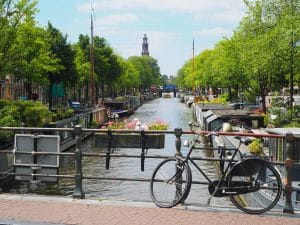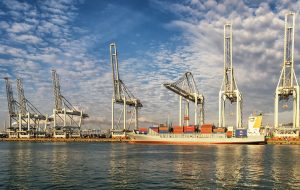With Brexit placing a gigantic question mark over the United Kingdom’s economic future, many businesses are uncertain as to what provisions they should put in place. Nowhere is this more prevalent than the logistics and transport sector, where many service providers are seeking a proactive approach to Brexit solutions.
Mere months away from the Brexit deadline, there is still ongoing ambiguity and frustration from many UK-based logistics companies about how they can expect to operate in Europe. Speaking in June, James Hookham of the Freight Transport Association said that “We were promised that ‘frictionless’ trade would continue through special agreements reached with the EU. Trade talks haven’t even started. In the event of a ‘no deal’ Brexit it will be the logistics industry…that will have to pick up the pieces of the failure of politicians to agree.”
With no real indication of whether the nation can anticipate a ‘hard’ or ‘soft’ Brexit deal – or indeed any deal at all – it may be time for UK-based logistics businesses to take matters into their own hands and move to a more favourable environment, such as the international shipping hub that is the Netherlands.
What will Brexit mean for UK-based logistics companies?
The impending Brexit deadline brings with it a number of issues. Firstly, UK transport legislation is currently based on EU laws and regulations; it remains to be seen if the British government will retain its directives unchanged post-Brexit, or if international vehicle drivers will be expected to adhere to two seperate sets of rules for Britain and the EU.
Trade deals for EU member states are also currently handled at EU (not national) level. As such, the UK will have to negotiate its own trade deals after March 2019 in order to continue trading with the rest of the world. In the event of a ‘no deal’ Brexit, WTO tariffs would also likely have to be applied, the paperwork for which would need to be completed at the border. This could potentially overwhelm an already stretched Border Force, who currently are able to wave through most EU traffic.
As many of the biggest container ships call at European deepwater ports to have their British deliveries transshipped from the mainland, the UK may need to renegotiate the process of receiving its goods via Europe post-Brexit – or otherwise invest in improving its own ports and road links to cater to these larger shipments.
It is as yet unclear which new border-crossing rules and regulations will be adopted across Europe. It seems likely that in future, British-based logistics companies may be required to present additional documentation, certificates and licences in order to enter some or all EU member states – and this process could potentially be a significant cause of delivery delays.
Another issue is that the UK has something of a shortage of HGV and other commercial drivers. With nearly 10% of the drivers working in Britain today hailing from other EU nations, it may be that Brexit compounds the problem, with uncertainty around residency rights driving some people away.
Additionally, analysts speculate that a ‘hard’ Brexit deal could cause a spike in fuel prices of as much as 20% if the value of the pound falls, or if the UK ends up outside the Single Market. This would make the UK subject to steep WTO import tariffs, which would apply to the significant amount of petrol that Britain receives via the EU.
Why move your logistics company to the Netherlands?
For logistics operations, of course, the principle consideration is location. The port of Rotterdam in the Netherlands is the largest port in Europe, and was at one time the busiest in the world – all of the very largest ships from East Asia unload there, for the simple reason that it is the only European port large enough to accommodate them. An enormous amount of cargo intended for British delivery passes through the the port every day, and if there is anywhere in Europe for a UK logistics company to set down new roots, it is the area around Rotterdam.
For a transport operator that also delivers to other EU countries, the Netherlands is a very sensible choice in general, as it is situated in proximity to the UK and within easy reach of other major European countries such as France, Germany, Belgium, Switzerland and Austria. Relocating a business base to Rotterdam or its surrounding area, then, could put a logistics company in the perfect position to maximise its reach, whilst still enjoying a close relationship with Britain (both figuratively and literally).
Another consideration for serving other EU countries is avoiding the potential “double duty” effect of importing goods from one EU country and later exporting to another. A UK-based company aiming to import goods from Germany in order to sell them to France, for example, would technically have to import the goods from the EU and then export them back, incurring twice the customs duty.
Even when storing these goods in a British bonded customs warehouse, a UK operator would still have to pay one round of customs fees when the goods arrive at their destination. By basing operations in the Netherlands rather than Great Britain, however, customs duty could be avoided entirely – as goods can transfer freely between EU member states.
The process of relocating to the Netherlands
As with opening a site in any country, establishing a business presence in the Netherlands involves various administrative processes. You will need to identify the correct type of company format; register with the Chamber of Commerce (in Dutch); and, if you are planning to move goods from the Netherlands to other countries, register for Dutch VAT.
The standard VAT rate in the Netherlands is 21% (although there is a 6% reduced rate on some items – such as newspapers and food – which will rise to 9% in January 2019). Intrastat registration will also be required above the thresholds of €1,000,000 for arrivals and €1,200,000 for dispatches.
Ultimately, the Netherlands represents a great opportunity for UK-based logistics and transport operations to find security amid today’s uncertain climate. Beyond simply safeguarding their interests from Brexit, the advantages of operating from Dutch soil could sow the seeds for major success in years to come.
The good news is that help is always available – we have many years of experience helping organisations move to Europe, and can take care of the process for you. Please don’t hesitate to call us on +44 (0) 20 8421 7470 or contact us via the website for guidance and advice.


